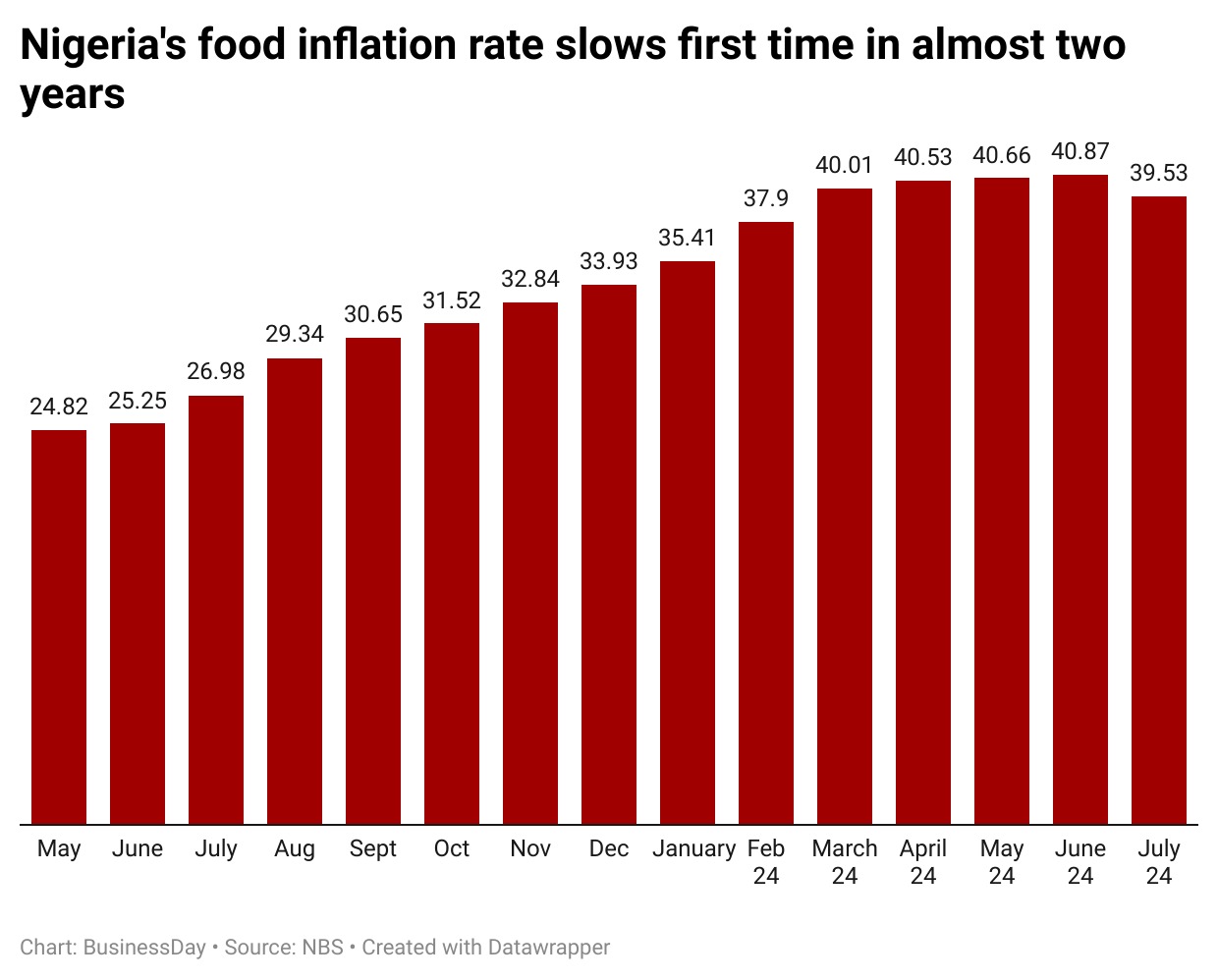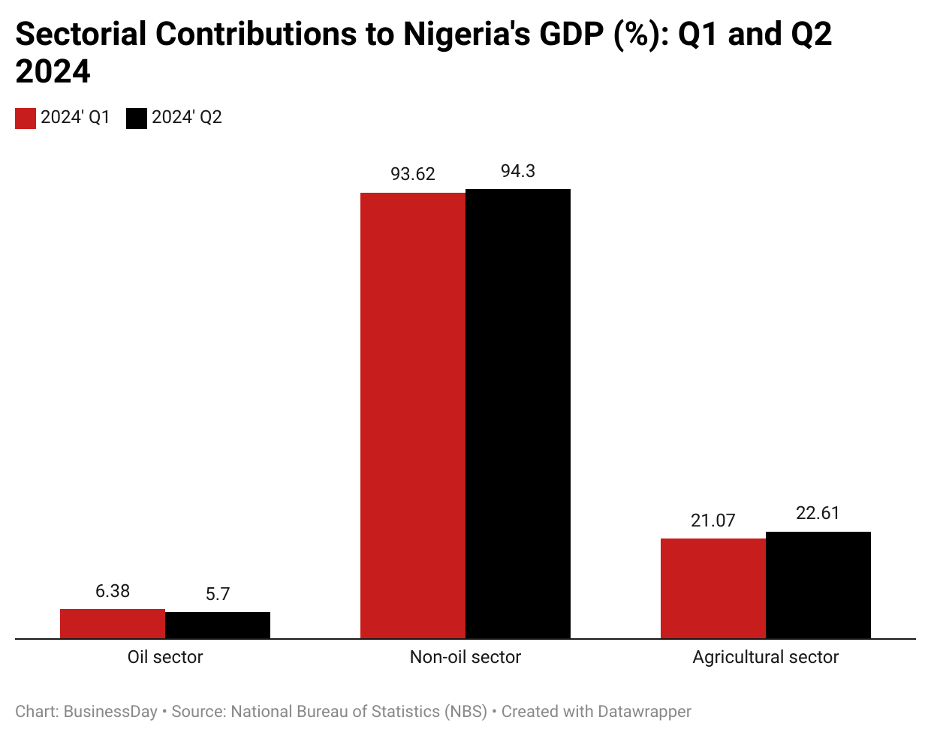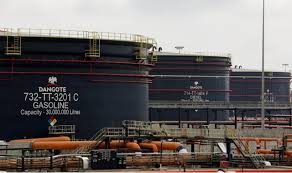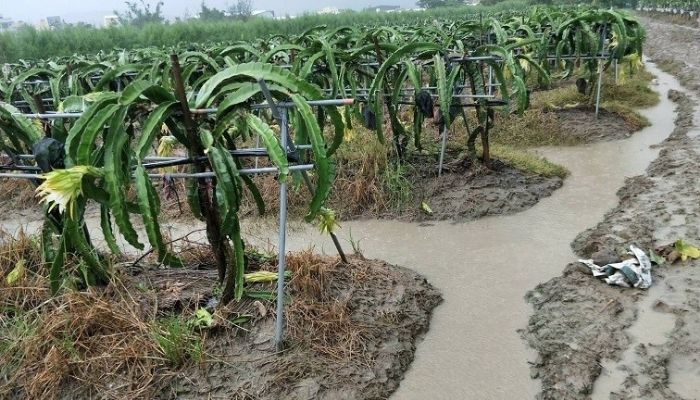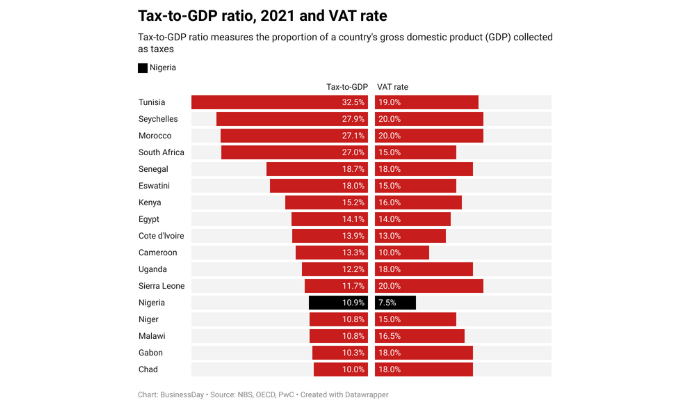The recent increase in petrol prices in Nigeria is likely to fuel another surge in food inflation, exacerbating an already severe cost of living crisis in Africa’s most populous country.
In July 2024, food inflation saw a brief decline to 39.53 percent from June's 40.87 percent, providing temporary relief to families struggling to afford basic staples.
However, data analysed by BusinessDay suggests this respite may be short-lived, as a direct correlation between rising petrol prices and food inflation continues to unfold.
Historically, food inflation has mirrored petrol price hikes. When the pump price of petrol jumped from N200 to N525 per liter in May 2023, food inflation quickly followed, rising from 24.8 percent in May to 25.25 percent in June.
A subsequent increase in the petrol price to N617 per liter in July led to food inflation reaching 29.3 percent by August. This trend is expected to continue as petrol prices affect transportation costs for moving food from rural farms to urban markets.
“Last month's decline in food inflation was just temporary,” warned Abiodun Olorundenro, managing partner of Prasinos Farms. “The surge in fuel prices is going to impact the government's efforts to curb inflation, and we are likely to see another spike in food costs.” Olorundenro explained that the cost of logistics for transporting agricultural products will rise as petrol-reliant vehicles face higher fuel costs, ultimately driving up food prices.
Nigeria's cost of living briefly eased for the first time since 2022 in July, thanks to improved supply and lower prices of key staples like garri, tomatoes, pepper, yam, and potatoes. However, experts are already forecasting a reversal of these gains due to the fuel hike. Food accounts for 60 percent of household income in Nigeria, and any increase in petrol costs will quickly filter down to the consumer.
The impact of these price increases extends beyond daily expenses. The United Nations has warned that 82 million Nigerians—about 64 percent of the population—could face hunger by 2030 if agricultural productivity issues are not addressed. The World Food Programme (WFP) echoed these concerns in April 2023, stating that 24.8 million Nigerians are already facing acute hunger.
As food inflation looms, experts like Jude Obi, president of the Association of Organic Agriculture Practitioners of Nigeria, believe the situation may worsen. “Farmers need fuel for their operations, and any additional costs will be passed down to consumers. This will accelerate the cost of living crisis and could make things worse than before,” Obi said.
With fuel prices driving up costs across the board, Nigeria’s food inflation is set to rise again, deepening the financial strain on households and threatening the modest gains made in recent months.

